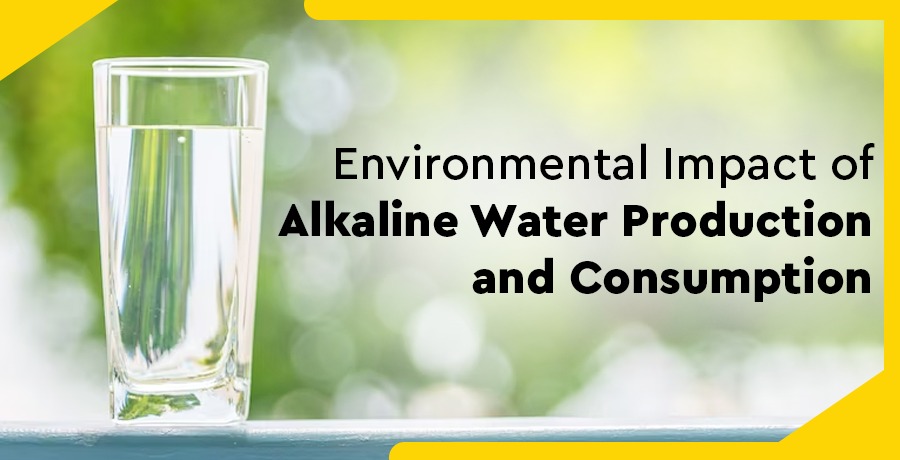Introduction
Alkaline water, with its purported health benefits, has gained popularity among consumers worldwide. However, it is essential to consider the environmental consequences of its production and consumption. In this article, we will explore the environmental impact of alkaline water, from the manufacturing process to disposal, and discuss sustainable alternatives.
The Manufacturing Process
- Energy Consumption: The production of alkaline water typically involves processes like ionisation or electrolysis, which require energy. This energy often comes from conventional power sources, contributing to greenhouse gas emissions and environmental degradation.
- Resource Intensity: Alkaline water is made by adding minerals such as calcium, potassium, and magnesium to water. The extraction and processing of these minerals can be resource-intensive, including mining and transportation, leading to habitat disruption and increased energy usage.
- Plastic Waste: Alkaline water is frequently sold in plastic bottles. The manufacturing, transportation, and disposal of these bottles contribute to plastic pollution, with many ending up in landfills and oceans, posing a severe threat to ecosystems and marine life.
The Carbon Footprint
The environmental impact of alkaline water production extends to its carbon footprint. The processes involved, such as mining, transportation, and manufacturing, release greenhouse gases into the atmosphere, contributing to climate change. Moreover, the energy-intensive electrolysis used to produce alkaline water can be a significant source of carbon emissions if not powered by renewable energy sources.
Water Scarcity Concerns
- Water Source Depletion: The production of alkaline water requires large amounts of water. In regions facing water scarcity, this can exacerbate existing problems by depleting local water sources and impacting ecosystems.
- Wastewater Generation: The process of producing alkaline water often generates wastewater that may contain excess minerals and other contaminants. Improper disposal of this wastewater can harm aquatic ecosystems and groundwater quality.
Sustainable Alternatives
- Reusable Alkaline Water Bottles: Instead of purchasing single-use plastic bottles, consider using reusable alkaline water bottles. These can be refilled with tap water, reducing plastic waste and the environmental impact associated with production and transportation.
- Home Filtration Systems: Invest in home water filtration systems that can alkalize your tap water. This reduces the need for bottled alkaline water and minimises the environmental impact associated with its production and packaging.
- Conscious Consumption: Be mindful of your water consumption and only purchase alkaline water when necessary. Reducing overall water consumption can help conserve resources.
- Support Sustainable Brands: If you choose to purchase alkaline water, opt for brands committed to sustainability. Look for companies that use renewable energy, prioritise recycling, and have transparent environmental policies.
Conclusion
While alkaline water may offer potential health benefits, it is essential to consider its environmental impact. The production and consumption of alkaline water can contribute to issues such as energy consumption, plastic pollution, carbon emissions, water source depletion, and wastewater generation.
To minimise these negative effects, individuals can adopt more sustainable practices, such as using reusable bottles, home filtration systems, and supporting eco-conscious brands. Ultimately, the responsible production and consumption of alkaline water must be balanced with environmental considerations to ensure a healthier planet for future generations.


